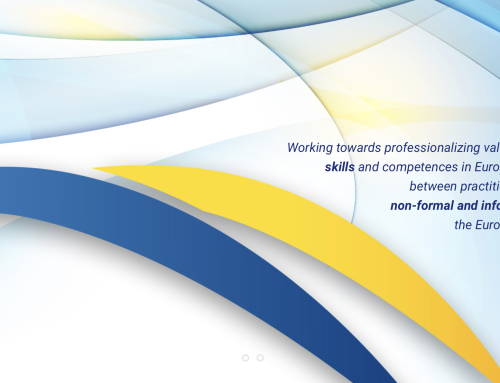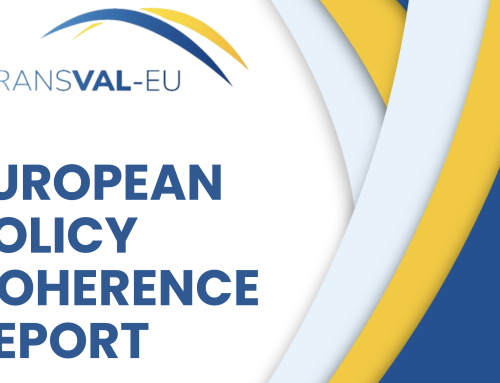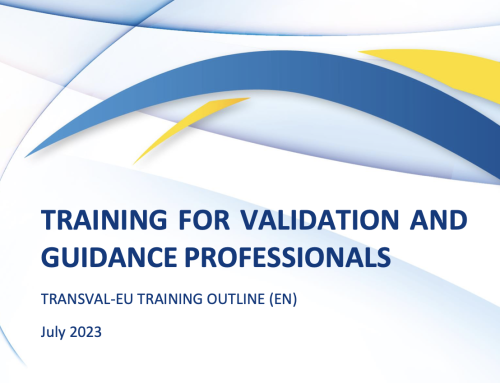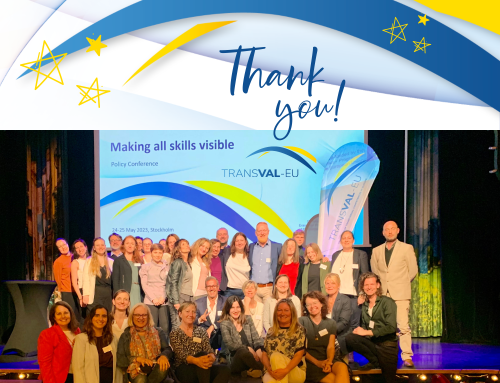TRANSVAL-EU: Project Kick-Off
On 15-16 March 2021, sixteen partners from seven countries started a new challenging endeavour – a policy experimentation on the validation of transversal skills, acquired through non-formal and informal learning across Europe. This is the TRANSVAL-EU project.
The need for this project comes from the following paradox in the education field that we have observed in recent years. On the one hand, there is increasing awareness that people’s learning is not limited to school classrooms and that learning is not only lifelong, but also life-wide, i.e., happening in multiple environments – work, home, friends, volunteering, hobbies. Among the outcomes of this learning is the acquisition of transversal competences – knowledge, skills and attitudes – that, as opposed to vocational skills or “job-specific” skills, can be used in diverse contexts (for instance in jobs but also in personal and social life). This knowledge should not be lost, which is why it is important to make it visible. On the other hand, it is not always easy to demonstrate it, for instance, to an employer. Hence, validation of transversal competences is key for individuals’ career pathways, social mobility, turning a passion into a job, enrolling in a formal educational programme, cross-border mobility and lifelong learning. Validation is the process of identification, documentation, assessment and certification of competences.
In Europe, a lot is already being done to develop the validation of non-formal and informal learning. To ensure common understanding of the terms, CEDEFOP has defined what validation, non-formal and informal learning are. These concepts are central to our project, and we share the definitions of these terms in this glossary.
Both non-formal and informal learning lead to the acquisition of transversal competences, a broad term, which encompasses many competences, such as language; skills for social interaction such as communication skills, team work; creativity; learning to learn; critical thinking; digital literacy and many other. They are also referred to as core skills, basic skills or soft skills, the cornerstone for the personal development of a person. Transversal knowledge, skills and competences are the building blocks for the development of the “hard” skills and competences required to succeed on the labour market.
During the first day of TRANSVAL-EU kick-off meeting, the four main Partner Ministries (Austria, French-Belgium, Umbria region in Italy, Lithuania) presented the status quo of validation in the respective countries and their expectations for TRANSVAL-EU. The added value in the project is that it involves high-level public authorities from five countries:
- The Austrian Federal Ministry of Education, Science and Research represented through the OeAD, Austria’s Agency for Education and Internationalisation – our project lead
- CVDC, the Consortium for the Validation of Competences which operates under the authority of the three French-speaking governments in Belgium
- KPMPC, the Qualifications and Vocational Education and Training Development Centre under the Lithuanian Ministry of Education, Science and Sport
- ARPAL, the Regional Agency for Active Labour Policies of the Umbrian region in Italy.
- Poland will also be involved in the field trials through our Polish partner Educational Research Institute.
The involvement of public authorities from different EU countries will allow us to test our approach and solutions in different contexts. The partnership has set itself a very ambitious goal, but we are confident that the consortium has the capacity to face the challenges. Thanks to this project, partners expect to improve the validation of transversal competences, as well as to equip validation practitioners with the necessary skills and tools.
During the second day of the kick-off meeting, partners delved concretely into the first activities – research on the state-of-the art in the field of validation of transversal competences. CVDC will take advantage of the work done in RECTEC, a European project that identified transversal skills for employability and matched them with professional certifications in three French-speaking countries: Belgium, France and Luxembourg. This initial research phase will lead to a number of important outputs, including a Common Transversal Competences Framework (TCF).




